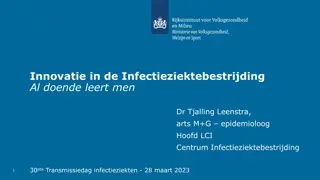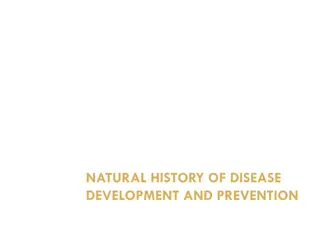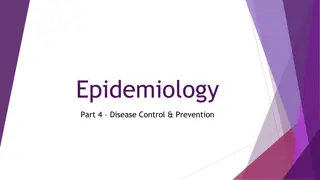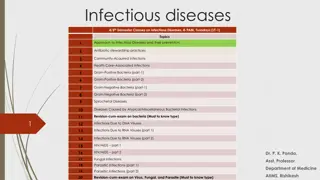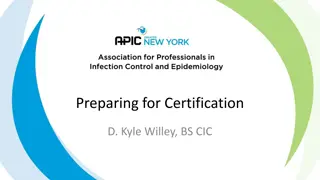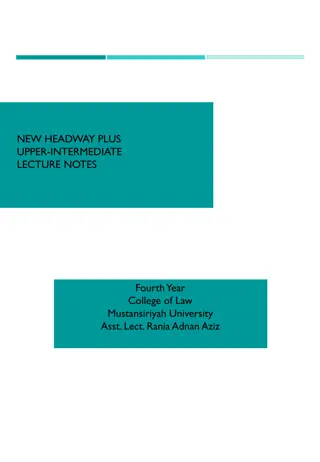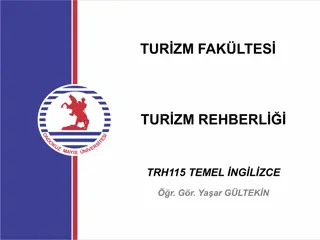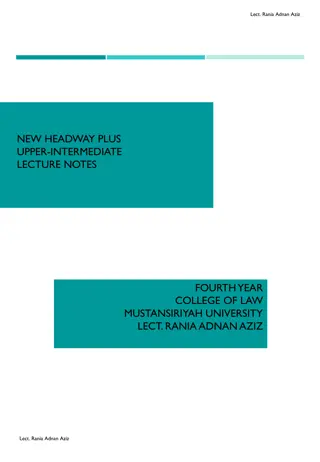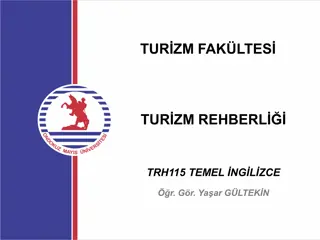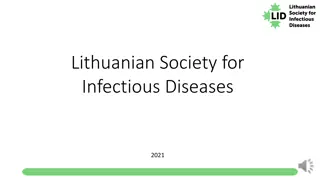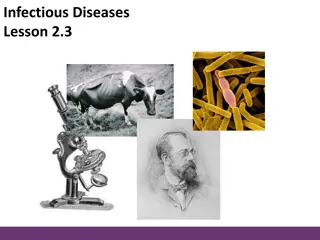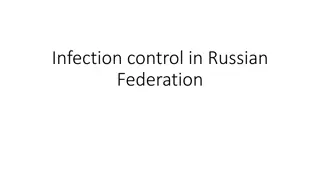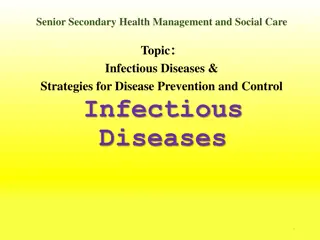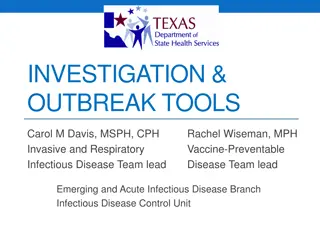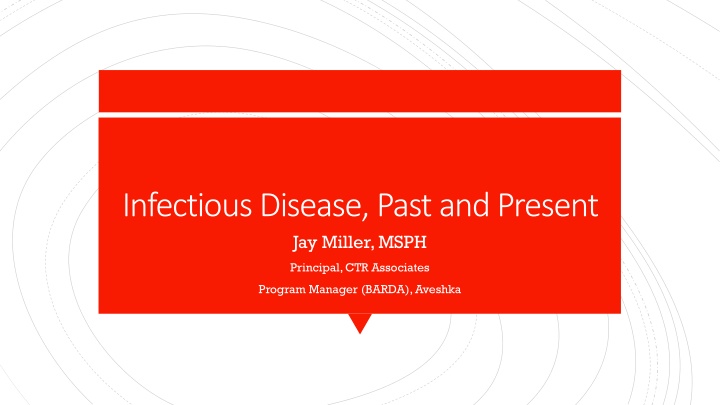
Infectious Disease: Past and Present Overview
Explore the history and impact of infectious diseases through events like the Plague, Spanish Flu, and Ebola outbreaks. Learn about infectious agents, methods of spread, and current challenges in global health security. Gain insights from epidemiologist Jay Miller on prevention strategies and the future of addressing infectious diseases.
Download Presentation

Please find below an Image/Link to download the presentation.
The content on the website is provided AS IS for your information and personal use only. It may not be sold, licensed, or shared on other websites without obtaining consent from the author. If you encounter any issues during the download, it is possible that the publisher has removed the file from their server.
You are allowed to download the files provided on this website for personal or commercial use, subject to the condition that they are used lawfully. All files are the property of their respective owners.
The content on the website is provided AS IS for your information and personal use only. It may not be sold, licensed, or shared on other websites without obtaining consent from the author.
E N D
Presentation Transcript
Infectious Disease, Past and Present Jay Miller, MSPH Principal, CTR Associates Program Manager (BARDA), Aveshka
Introduction What causes infectious disease? Infectious Agents Methods of Spread Historic Disease Events The Plague (Justinian's Plague, the Black Plague, Third Pandemic, and modern outbreaks) The Birth of Epidemiology (Cholera, London, 1854) Spanish Flu (1918, H1N1 Influenza) Mass Vaccination (Polio, Jonas Salk) West African Ebola (Ebola Virus Disease, 2014) Overview Infectious Diseases Now and Looking Ahead Biosecurity, Genetic Manipulation, Climate Change and Disease X Global Health Security What we can do to make a difference now Questions
Jay Miller, MSPH Epidemiologist, Science Diplomat, and Global Health Security Expert ( epi demic upon the people) Who are you, and why should we listen? Extensive experience designing, developing and implementing infectious disease prevention and mitigation efforts in Africa, Southeast Asia, the Middle East, and here in the United States. Currently supporting BARDA and CTR Associates
Infectious Disease Agents: Viruses Bacteria What Causes Infectious Disease? Parasites Fungi Prions
Airborne (Droplets, Coughing and Sneezing) Fecal-oral Transmission Blood and Body Fluid Methods of Spread Sexual Transmission Foodborne/Waterborne Fomites
Diseases that have Shaped our World
Causative Agent: Yersinia Pestis, Bacterium Transmission routes: Flea bites (vector borne), contact with body fluid, or contact with droplets. Major historical events: Justinian s Plague (began 541 AD and killed up to 10,00 people a day) World population at this time: less than 200 million The Black Plague (killed 30-60% or Europe) The Third Pandemic (lasted more than 100 years, ended after the discovery of the bacterium) The Plague The Plague today Sporadic Treated easily Still deadly, still problematic, but generally under control
Cholera, the Broad Street Pump, and the Birth of Epidemiology Dr. John Snow London, 1854
Not actually from Spain The cause of more than 50,000,000 human deaths, more than World War I Case fatality reported as up to 50% Spanish Flu (La Grippe), H1N1 Influenza, and Globalization The first example we have of a truly global pandemic
First viable vaccine against the poliomyelitis virus First mass vaccination campaign Dr. Jonas Salk offers his invention for free, acquiring untold fame and ceding untold fortune Sets the stage for a drastic increase in human life expectancy, and in arguable the greatest ever advancement in medicine Polio, Mass Vaccination, and Dr. Jonas Salk, 1953
First discovered in Zaire (Modern day Democratic Republic of Congo) on the Ebola river Transmitted by bats and primates Extreme case fatality rate Medical staff highly susceptible Extreme presentation of illness Ebola, West Africa, 2014 No cure, no vaccine (at the time), novel to this region of the world
Unfortunately No, but as humans, we are in a better place than we have ever been despite some outstanding threats to health security: Bioterrorism Genetic Manipulation/Laboratory created agents Antimicrobial resistance Extreme globalization Disease X Are we in the clear?
What are we doing to stop the next great pandemic? Health Security
What can I do? Support Science Health Security Support Collaboration Learn from the past

